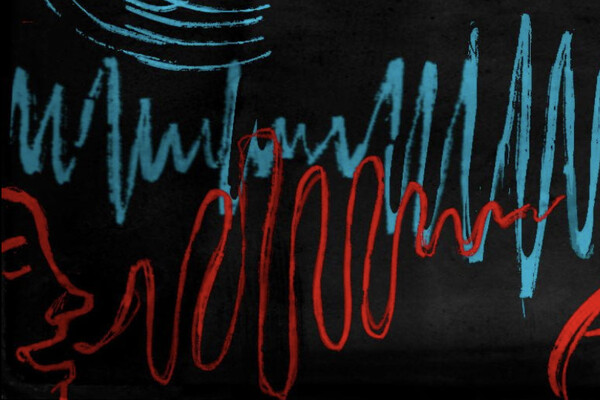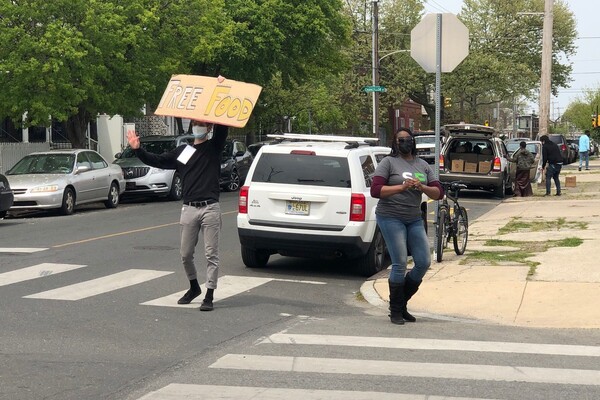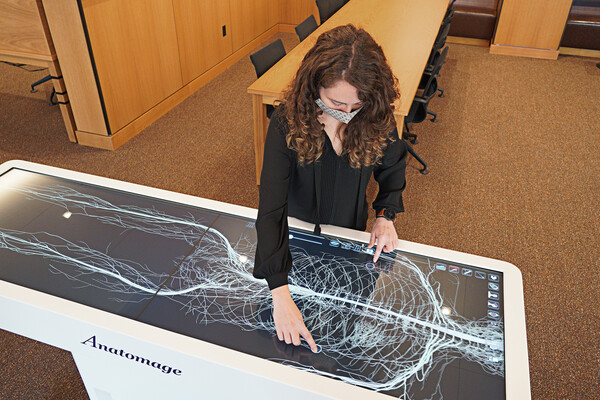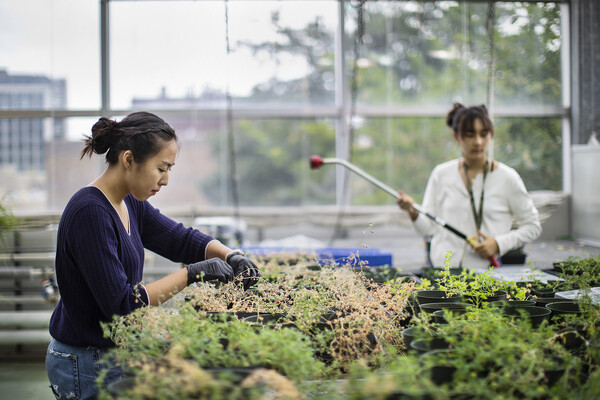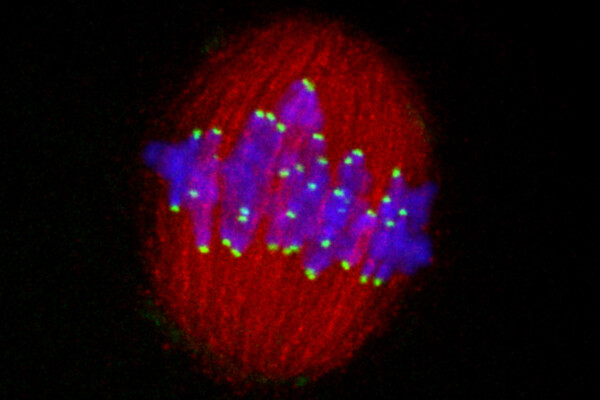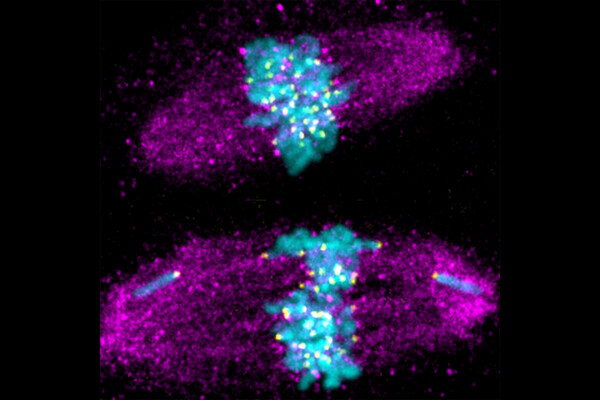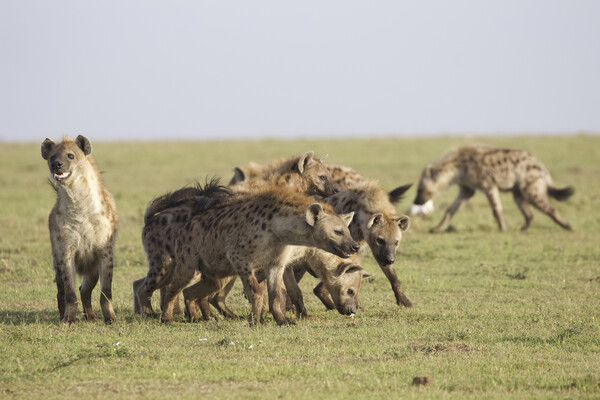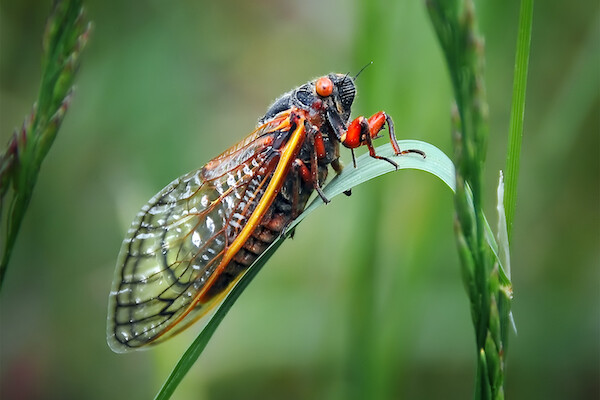5/10
Biology
In These Times: Fear and loathing and science
Season three of the School of Arts & Sciences podcast explores scientific ideas that get big reactions.
Supporting Philadelphia newcomers and longtime residents through Palms Solutions
Founded by a Penn alum, the West Philadelphia-based nonprofit connects members from area African and Caribbean immigrant communities with students through mentoring and tutoring alongside social and cultural exchanges.
Penn Libraries opens newly renovated Biotech Commons
The Penn Libraries has transformed its former Biomedical Library into a newly renovated space with a new name, the Biotech Commons.
Mapping words to color
Researchers led by postdoc Colin Twomey and professor Joshua Plotkin developed an algorithm that can infer the communicative needs different linguistic communities place on colors.
Interact, adapt, repeat: A summer studying coevolution
Sophomores Linda Wu and Nova Meng spent the summer studying coevolution among plants, mutualistic bacteria, and parasitic nematodes in Corlett Wood’s biology lab.
Evolutionary ‘arms race’ may help keep cell division honest
Research from the lab of Michael Lampson in the School of Arts & Sciences suggests that certain proteins may have evolved to reduce the likelihood of chromosomes “cheating” to bias their chance of winding up in an egg during the cell-division process meiosis.
Rewiring cell division to make eggs and sperm
Research by the School of Arts & Sciences’ Michael Lampson and Jun Ma, collaborating with Whitehead Institute researchers, reveals how a key protein enables the process of meiosis to unfold.
High-ranking hyena mothers pass their social networks to their cubs
Using 27 years of detailed data on hyena social interactions, a team led by Penn biologists nailed down a pattern of social network inheritance and its implications for social structure, rank, and survival.
Biologist Daniel Janzen illustrates how a cicada is like an oak tree
Janzen, the DiMaura Professor in Biology, on why cicadas (and wildebeests, salmon, and oak trees) act the way they do.
Obscuring the truth can promote cooperation
People are more likely to cooperate if they think others are cooperating, too. New research by biologists in the School of Arts & Sciences shows that overstating the true level of cooperation in a society can increase cooperative behavior overall.
In the News
Man does DNA test, not prepared for what comes back ‘unusually high’
César de la Fuente of the School of Engineering and Applied Science and Perelman School of Medicine says that Neanderthal DNA provides insights into human evolution, population dynamics, and genetic adaptations, including correlations with traits such as immunity and susceptibility to diseases.
FULL STORY →
Bird flu virus has been spreading in U.S. cows for months, RNA reveals
Louise Moncla of the Veterinary School of Medicine says that the bird flu virus is clearly being transmitted to cows in some way.
FULL STORY →
When is the best time to take L-theanine—morning or night?
According to Colleen Tewksbury of the School of Nursing, research suggests that L-theanine may help support stress management, sleep, and potentially weight management.
FULL STORY →
Is the flu shot market a slam dunk for mRNA vaccines? Experts aren’t so sure
Scott Hensley of the Perelman School of Medicine is working on a flu vaccine to provide protection against 20 subtypes of flu that may pose a pandemic threat in the future.
FULL STORY →
Thanks, Neanderthals: How our ancient relatives could help find new antibiotics
A study by César de la Fuente of the Perelman School of Medicine and colleagues used AI to recreate molecules from ancient humans that could be potential candidates for antimicrobial treatments.
FULL STORY →
Long COVID brain fog may originate in a surprising place, say scientists
A study by Christoph Thaiss and Maayan Levy of the Perelman School of Medicine and colleagues finds that long COVID’s neurological symptoms, like brain fog, memory loss, and fatigue, may stem from serotonin reduction.
FULL STORY →



